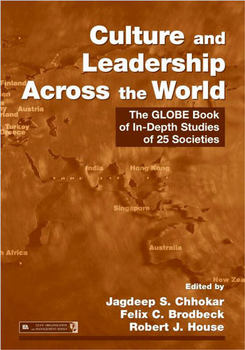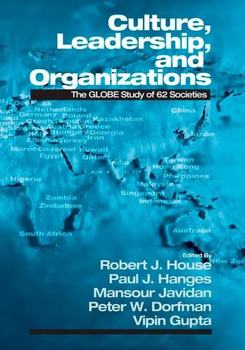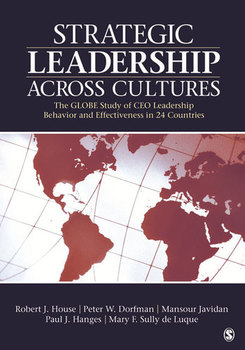Eastern Europe
Albania, Georgia, Greece, Hungary, Kazakhstan, Poland, Russia, Slovenia
The GLOBE Eastern European cluster consists of Albania, Georgia, Greece, Hungary, Kazakhstan, Poland, Russia, and Slovenia. The societal culture practices for this cluster are very distinct. Societies belonging to this cluster reflect relatively high scores of the societal cultural practices on the dimensions of In-Group Collectivism and Power Distance. These societies maintain close family ties and individuals express pride and loyalty in organizations and family. Members of these societies also do not expect power to be distributed evenly among citizens. The cluster scores on Assertiveness are in the medium range but still higher than most other clusters. Low scores on Future Orientation and Performance Orientation are noteworthy as they are the lowest of all clusters. Uncertainly Avoidance, the use of rules and procedures to alleviate unpredictability of future events, also is extremely low among the clusters. The ratings of the other societal cultural dimensions including Humane Orientation, Institutional Collectivism, and Gender Egalitarianism fall in the middle range. Interestingly, while all clusters are male-dominated, this cluster is the most gender egalitarian of all clusters. Also, Humane Orientation, while in the medium range, is less than the average of other clusters. Overall, the Eastern European cluster is highly group and family-oriented with societal cultures that accept and endorse authority, power differences, and status privileges. These societies exhibit relatively high tolerance to unpredictable future events but also tend to be assertive, confrontational, and aggressive in social relationships compared to other clusters.
The cluster's societal values (that is, what people in society believe should be), on the other hand, are considerably different than its cultural practices. Specifically, the cluster's values score is much higher than its practice score for Performance Orientation and Future Orientation. Still, these scores fall in the average range for all clusters. They wish to remain about the same level of In-Group Collectivism (high) and Institutional Collectivism (low to medium). They wish to increase their level of Humane Orientation (being generous, caring, and kind), and Uncertainty Avoidance (use of rules and procedures to reduce unpredictability). All societies in the cluster express a strong desire to reduce Power Distance (the degree to which the community accepts and endorses authority, power differentials, status privileges, and social inequality) and Assertiveness (reducing the level of dominance and toughness).
Concerning leadership profile scores of the Eastern European cluster, Charismatic/Value-Based and Team-Oriented Leadership are believed to contribute to outstanding leadership. The Charismatic score is about average compared to other cluster scores but the Team Oriented score is higher than most other clusters. The Charismatic attributes that are endorsed include a realistic vision, high performance orientation, integrity, and decisiveness. These societies also value team oriented leaders whose characteristics include developing outstanding teams and using their administrative and interpersonal skills to create cohesive working groups. Although these societies also view Participative and Humane- Oriented Leadership positively, these dimensions are not held in the same importance as the first two leadership dimensions. In fact, the Participative dimension score is one of the lowest among clusters. Autonomous Leadership is viewed in a neutral manner but is the highest of all clusters indicating the importance of being independent. Self- Protective Leadership is viewed somewhat negatively but compared to the other GLOBE clusters, the Eastern European cluster is ranked as one of the highest for Self-Protective Leadership (i.e., less negative than most other clusters). Overall, the rankings indicate that an outstanding leader for this cluster would be one who is somewhat charismatic and team- oriented, but prefers to be independent (i.e., their own person), does not particularly believe in the effectiveness of participative leadership, and is not reluctant to engage in self-protective behaviors if needed.
Culture Visualization
Leadership Visualization
GLOBE Books
The GLOBE books represent results from a twenty-year research program investigating the influence of culture on societal and organizational effectiveness. Our latest book showcases our examination of strategic leadership effectiveness for top-level management based on data from more than 1,000 CEOs and over 6,000 top-level managers in 24 countries.
View



